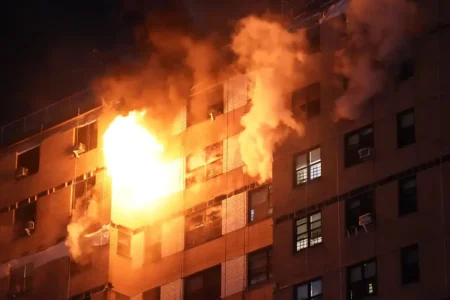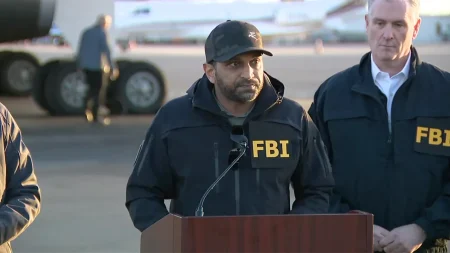Moldova’s Pivotal Parliamentary Election: A Crossroads for EU Aspirations Amid Regional Tensions
Moldova Heads to the Polls as European Dreams and Russian Influence Hang in the Balance
In the shadow of Europe’s largest conflict since World War II, Moldova prepares for parliamentary elections that could determine the trajectory of this small Eastern European nation for decades to come. Situated on Ukraine’s southwestern border, Moldova finds itself at a geopolitical crossroads, with its long-held European Union aspirations facing significant challenges from both internal divisions and external pressures. As Moldovan citizens prepare to cast their ballots, the stakes extend far beyond domestic politics, reflecting broader tensions between Western integration and Russian influence in the region.
The timing of these elections carries particular significance as Moldova recently achieved official EU candidate status in June 2022, a milestone in the country’s post-Soviet journey. President Maia Sandu, a Harvard-educated former World Bank economist and staunch pro-European, has championed Moldova’s EU integration efforts since her election in 2020. “This is not merely an election, but a referendum on our European path,” Sandu declared at a recent campaign rally in Chișinău, the capital. Her Party of Action and Solidarity (PAS) has implemented numerous reforms aimed at addressing corruption, judicial independence, and economic modernization—all prerequisites for eventual EU membership. However, these reforms have been met with resistance from opposition parties that favor closer ties with Russia, highlighting the deep societal divisions that have characterized Moldovan politics since independence in 1991.
Regional Tensions and Russian Influence Cast Long Shadows Over Electoral Process
Moldova’s geographic vulnerability has placed it squarely in the crosshairs of regional geopolitical competition. The country’s location between Romania, a NATO and EU member, and war-torn Ukraine has amplified security concerns and economic pressures. Perhaps most notably, the unresolved status of Transnistria—a breakaway region on Moldova’s eastern border that hosts approximately 1,500 Russian troops—remains a significant obstacle to territorial integrity and national security. Energy dependence has further complicated Moldova’s position, with the country historically relying heavily on Russian natural gas supplies. In recent years, however, the government has made significant strides toward energy diversification, connecting to the European energy grid and reducing dependence on Russian resources. “Energy security is national security,” explained Economy Minister Dumitru Alaiba in a recent interview. “Our efforts to diversify energy sources represent not just economic prudence but strategic necessity in our European integration journey.”
The electoral landscape has been further complicated by what Moldovan authorities and Western intelligence agencies describe as unprecedented levels of Russian interference. The Moldovan Intelligence Service has documented numerous cases of election meddling, including disinformation campaigns, cyberattacks on government institutions, and alleged financial support for pro-Russian political parties. “We are witnessing a coordinated effort to derail Moldova’s European path through hybrid warfare tactics,” stated Intelligence Chief Alexandru Musteață. These interference efforts have been accompanied by economic pressure, with Russia imposing import bans on Moldovan agricultural products—a crucial sector for the country’s economy—and manipulating gas supplies and prices. Despite these challenges, the Moldovan government has implemented robust measures to safeguard the electoral process, including increased cybersecurity protocols and international election monitoring.
Economic Challenges and Reform Efforts Shape Voter Priorities
The economic landscape looms large in voters’ minds as they approach the ballot box. Moldova remains Europe’s poorest country, with a GDP per capita of approximately $5,700 and significant portions of its workforce employed abroad. The COVID-19 pandemic, energy crisis following Russia’s invasion of Ukraine, and inflation have created a perfect economic storm that has tested the resilience of Moldova’s modest economy. The government’s reform agenda has yielded some positive results, including increased foreign direct investment and improved transparency in public procurement. However, these gains have been overshadowed by the immediate economic pressures facing ordinary citizens. “People cannot eat reforms,” remarked Vitalie Călugăreanu, a prominent Moldovan political analyst. “While the long-term benefits of European integration are clear, many voters are focused on immediate economic concerns—rising prices, employment opportunities, and energy costs.”
Opposition parties have capitalized on these economic anxieties, promising immediate relief through renewed economic ties with Russia and the Eurasian Economic Union. The Socialist Party, led by former President Igor Dodon, has framed the election as a choice between “European austerity and Russian prosperity,” a message that resonates in certain regions, particularly among older voters and Russian-speaking communities. Meanwhile, the Șor Party, named after its founder Ilan Șor—a controversial businessman convicted in absentia for his role in a massive banking fraud scandal and currently residing in Russia—has gained support through populist economic promises and anti-establishment rhetoric. Both parties have questioned the wisdom of pursuing EU integration at the expense of traditional economic partnerships. The government, for its part, has emphasized that European integration offers the only sustainable path to economic development and prosperity. “The short-term pain of reform will yield long-term economic stability and growth,” Prime Minister Dorin Recean stated during a recent economic forum. “Moldova’s future prosperity lies in European markets, not in economic models of the past.”
Civil Society’s Crucial Role in Defending Democratic Values and European Aspirations
Amidst these competing political narratives, Moldova’s vibrant civil society has emerged as a crucial defender of democratic values and European aspirations. Non-governmental organizations, independent media outlets, and grassroots movements have worked tirelessly to promote electoral transparency, combat disinformation, and educate voters about the importance of democratic participation. “This election is not just about political parties or geopolitical orientation; it’s about the kind of society we want to build,” explained Natalia Morari, a prominent Moldovan journalist and civil society activist. “A society based on rule of law, human rights, and European values versus one dominated by corruption, oligarchic interests, and external control.” The diaspora, estimated at nearly one-third of Moldova’s total population, also plays a significant role in the electoral process, with overseas voting typically favoring pro-European candidates. Their participation could prove decisive in a closely contested election.
The international community has demonstrated strong support for Moldova’s European path and democratic resilience. The European Union has provided substantial financial assistance, including a €150 million economic recovery package and technical support for reforms. The United States has similarly increased aid to Moldova, focusing on energy security, democratic institutions, and countering foreign malign influence. “Moldova’s success is important not just for its citizens but for the broader European security architecture,” stated Josep Borrell, the EU’s High Representative for Foreign Affairs and Security Policy, during a recent visit to Chișinău. “These elections represent a critical moment in Moldova’s European journey, and we stand firmly with the Moldovan people in their democratic choice.” As election day approaches, international observers from the OSCE, EU, and other organizations have deployed across the country to monitor the electoral process and help ensure its integrity.
Moldova’s Democratic Choice: A Test Case for European Integration in a Contested Region
As Moldova stands at this historic crossroads, the parliamentary elections represent far more than a routine democratic exercise—they embody a fundamental choice about national identity and future direction. The outcome will not only shape domestic politics but will send important signals about the viability of European integration in countries facing significant Russian influence and internal divisions. “Moldova has become a test case for whether small, vulnerable countries can successfully chart an independent, European path despite enormous external pressures,” noted Thomas Carothers, a democracy expert at the Carnegie Endowment for International Peace. For the EU, Moldova’s success would demonstrate the continued attractiveness of the European model in its eastern neighborhood, while failure could embolden those who question the effectiveness of the EU’s engagement in the region.
Beyond geopolitics, these elections reflect the aspirations and concerns of ordinary Moldovans seeking stability, prosperity, and dignity after decades of economic hardship and political turbulence. In villages and cities across this nation of 2.6 million people, conversations reveal a population weary of being treated as pawns in great power competition but determined to secure a better future. “We have lived between East and West for centuries,” remarked Maria Lungu, a 67-year-old pensioner from Soroca. “But now we must choose our own path, for ourselves and for our grandchildren.” As polling stations prepare to open, Moldova’s democratic choice will resonate far beyond its borders, potentially reshaping the geopolitical landscape of Eastern Europe and testing the resilience of European values in a contested region. Whatever the outcome, these elections mark a defining moment in Moldova’s ongoing journey from Soviet republic to European democracy—a journey watched closely by friends and foes alike.










